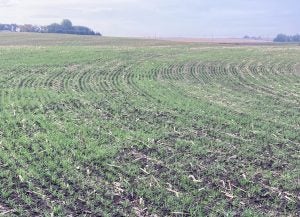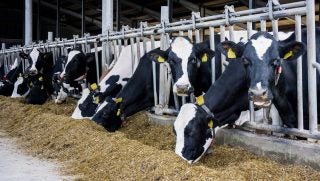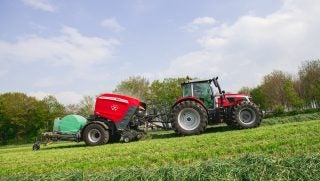A pair of U.S. senators — one a Democrat, the other a Republican — have teamed up to introduce legislation that would support farmer-led education networks and build capacity for new ones, particularly as a means to increase the adoption of agricultural conservation practices nationwide.
Known as the Farmer to Farmer Education Act, the bill fills a critical gap in federal programs to support and provide guidance to those networks and would specifically help communities that are historically marginalized from existing systems. This bill from Sen. Ben Ray Luján (D-N.M.) and Jerry Moran (R-Kan.) was written in close collaboration with American Farmland Trust and the National Young Farmers Coalition.
Conservation practices benefit both individual farmers through reduced input costs and increased resilience to extreme weather, as well as society, through improved water and air quality, carbon sequestration, and other ecosystem services. AFT case studies reveal an average return of $3 for every $1 invested into soil health practices. Yet the nonprofit organization says that these crucial conservation practices remain underutilized by farmers. In the 2017 U.S. Department of Agriculture Census of Agriculture, the key conservation practice of cover cropping, for example, was planted on only 6 percent of cropland acres.

AFT says that farmers face numerous barriers to adopting conservation practices, including cost, risk, lack of access to the right equipment, and insecure land tenure. Limited support or a lack of technical assistance is another major barrier to practice adoption. In a 2022 Young Farmers survey of over 10,000 young farmers across the country, 15 percent of respondents cited acquiring necessary “farming skills” as their top challenge.
Traditional technical and financial assistance at the USDA’s Natural Resources Conservation Service can help overcome some of these barriers, but farmer-to-farmer education provides the critical missing piece that enables farmers to overcome adoption barriers by having someone with firsthand experience share both the benefits and challenges of practice adoption. Learning from other farmers can help answer key questions about perceived risks to yield, labor costs, and product quality that can prevent farmers from trying a new practice.
“Farmers and ranchers across the country face many conservation challenges, including staffing shortages at NRCS, which limits their access to conservation technical assistance,” Moran said. “This legislation would allow farmer-to-farmer groups to develop cooperative agreements with USDA to share conservation concepts and new practices.”
A recent AFT survey revealed that over 50 percent of producers surveyed sought conservation education from another farmer, versus 20 percent from NRCS. Many farmers are interested in providing or receiving support from other producers, but do not know where to start. The Farmer-to-Farmer Education Act of 2023 as part of this year’s farm bill discussions would:
- Offer an inexpensive way to augment traditional USDA and Extension-funded research programs, to advance knowledge of how to adopt conservation practices long-term, especially for cropping systems and/or geographic contexts that require more tailored approaches.
- Build social support and community, with accompanying mental health benefits.
- Support groups that have often struggled to access traditional conservation programs by building on existing community leadership.

“Many farming communities already hold considerable knowledge of how to adapt to the droughts, floods, and other climate events farmers are experiencing across the U.S.,” said Erin Foster West, Policy Coordination and Management Director at the National Young Farmers Coalition. “The Farmer to Farmer Education Act will invest in knowledge sharing within those communities so that young farmers can learn from friends and neighbors whom they trust. This investment will fill a gap in conservation technical assistance delivery to ensure information farmers receive is in their own language and relevant to their cultural farming and ranching practices.”


